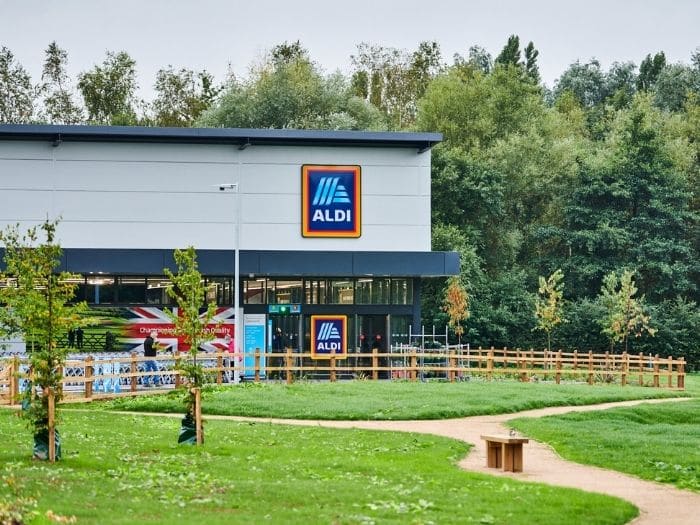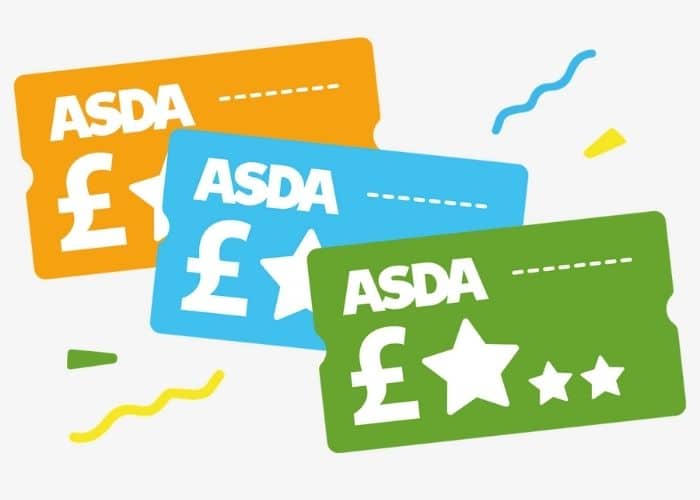
To create a successful podcast, you need more than just a great show.
You need strong podcast SEO that helps your quality content be found by relevant listeners.
If your series isn’t easy to find on search engines (including platforms like Spotify and Apple Podcasts), you’ll lose out on organic traffic, listens, downloads, and brand awareness.
In this article, you’ll learn how SEO for podcasts can make or break your show. Including tips and real-world examples that can help you boost your podcast’s rankings.
Let’s dive in.
Why Podcast SEO Matters
Podcast SEO is a series of tasks that help your show and episodes rank highly on search engines for relevant keywords.
Without doing these tasks, your target listeners will probably have a hard time finding your content when they search for podcasts like yours.
Why?
Because there are millions of podcasts available (5 million on Spotify alone). With more episodes being published every day.
So, taking the time to optimize your podcast for searchers helps ensure it doesn’t get buried among the competition.
Here’s how podcast SEO specifically supports your podcast performance:
It Increases Search Visibility for Your Brand
As noted by Edison, the top way listeners discover podcasts is by searching the web for them. Like on Google or apps such as Spotify and Apple Podcasts.

Image Source: Edison
Podcast SEO tactics can get your episodes to rank higher in those search results.
Which then helps you:
- Increase listenership (and potentially website visitors if your podcast makes up part of your marketing funnel)
- Boost your topical authority (establishing your website—and yourself—as an expert in the space)
- Attract higher-profile guests (because some guests will only get out of bed for podcasts with a certain number of listeners)
- Appeal to more sponsors (because those fancy microphones don’t pay for themselves)
For instance, SEO can help your true crime podcast top Google’s search engine results pages (SERPs):

In this list, you see podcasts with “true crime,” “criminal,” and even “best true crime” in the title. Which are all relevant keywords for someone looking for a new true crime show.
So, these titles are like signposts for the search engine to serve these results to someone looking for the “best true crime podcasts.”
The same principle applies on podcast platforms.
Here’s one real-world example:
Podcast agency Voxalyze encouraged a real estate client to replace an irrelevant word in its podcast title with a more relevant, high-volume keyword. And it jumped to the third-highest position on Spotify and Apple Podcasts for that search term.
It Increases Opportunities for Link Building
Link building involves getting another website (ideally one with a good reputation) to link to your website.
Why is this important?
Because those backlinks are an important ranking factor for Google. They’re like little endorsements for your brand from a trusted authority.
And podcast SEO can help you get more of them.
Adding your website link to your show notes on podcast platforms is one way to get links from one site to another.
You can also add your website to your podcast’s social media page and its own website if you’ve created a separate site for it. Like Kate Toon’s link on her podcast’s Instagram page:

And every podcast guest is a potential backlink waiting to happen. Ask them to share a link on their website and social media. Odds are, they’ll say yes.
It Accelerates Content Production on Other Platforms
You put a lot of effort into each podcast episode. Like completing extensive research on topics your target audience is interested in and planning, recording, and promoting your content.
So why save all that work for just one platform?
Get in front of more potential listeners by repurposing your podcast.
Recycling and repurposing podcast content means reusing all or elements of your episodes in new formats.
For example, Refine Labs CEO Chris Walker shares clips of his filmed podcast on TikTok:

Walker’s video then acts like a trailer for his podcast, attracting new listeners from the TikTok audience who want to hear more. All without having to create brand-new content.
Conduct audience research to figure out which social media platforms are best suited to reach your listener demographic.
And a repurposing strategy doesn’t just work for visual podcasts, either. You can also create social media posts using quotes from your podcast transcript. (We’ll talk more about transcripts later.)
How to Optimize Your Podcast for Search Engines
If you don’t know how to use podcast SEO to your advantage, you’ll miss out on a good chunk of new listeners and business.
Here are six podcast SEO tips for optimizing your podcast to rank highly on Google and podcast app search engines:
1. Use Strategic Keywords for Podcast Episode Titles and Descriptions
People will only search for your podcast specifically if they know what your show’s title is.
So, to boost your chances of being found by relevant listeners out there, you need to use keywords in your titles and descriptions that they’re likely to search.
In fact, Apple Podcasts notes that show’s name and episode titles are key when serving up “the “best possible match” to searchers.
To find the right keywords to help your podcast climb search rankings, start with keyword research. You can learn the basics in our three-step guide.
And when you’re ready to advance, we have a whole suite of tools to help you dig deeper (and rank higher):

How to Optimize Your Show Description
A keyword-optimized podcast description adds context to your title and provides details on the theme. Search engines then connect these terms to your podcast, increasing your chances of ranking for them.
Here’s a well-optimized example from short-form marketing broadcast Copyblogger FM:

There are strategic, relevant terms related to content marketing. So, search engine algorithms are more likely to show a link to Copyblogger FM when people search for a podcast on those topics.
And in just two sentences, Copyblogger FM covers the main points for potential listeners:
- The hosts’ names
- Covered topics
- Show frequency (i.e., when new episodes drop)
Follow their lead and keep things brief and informative.
How to Optimize Your Episode Titles
Episode titles tell podcast platforms what the topic of each show is. The search algorithms then try to match those titles to searched phrases so they can deliver relevant results to users.
Keep titles simple and search friendly. Include:
- The episode theme (including a relevant keyword)
- Guest names (if applicable)
- A phrase that meets search intent (e.g., “how to write a kids book” instead of “kids book”)
And try to keep your episode titles under 60 characters. Longer titles risk getting cut off in search results.
Let’s look at these examples from The Agents of Change Podcast:

Each easy-to-read title is under 60 characters. And they each include a unique digital marketing keyword. Like “AI content,” “homepage,” and “sales funnel.”
All three include the guest’s name. This makes episodes more visible to people searching for a particular industry influencer.
Titles should always address search intent, or the main reason searchers are searching for a certain term. In many cases for podcasts, the intent will be to learn about something—an informational intent.
For example, using a question such as “Should AI write your content?” conveys it’ll be answered during the podcast. While a “How to” title tells the listener that they’ll get clear instructions within the episode.
How to Optimize Your Episode Descriptions
Descriptions often get cut off after the first couple of sentences. So it’s important to make these early characters count to grab your listener’s attention.
Let’s look at an episode of The Email Marketing Show on referral marketing:

The description starts strong by hooking people in with a question.
They clearly sum up the value they’re sharing with their audience so they can quickly scan the text and determine if it’s worth their time to listen.
And they fit in the relevant “referral marketing strategy” keyword early on in the second line.
These elements make it a description that both humans and search engines will respond well to.
2. Meet Search Intent With Relevant, Compelling Topics
Adding keywords is a great start for discoverability. But you can’t just add keywords to content and expect to reap allthe rewards.
To keep people listening and coming back for the next episode, you need to deliver the value you promised in the episode title and description.
That’s where search intent comes in.
Say a listener searches for “vegetable gardening podcasts” and sees the BBC Gardeners’ World Magazine Podcast episode titled “Growing Your Own Food – With Monty Don.”

If the podcast goes down too many detours and side conversations not related to vegetable gardening, they’re likely to turn it off. Likewise if it doesn’t include enough quality advice from Monty.
If you target relevant keywords with your shows but don’t successfully meet the why behind why people are searching for them, people won’t stay to listen.
And these bounces tell search engines your content isn’t relevant.
The result?
Deprioritization and a drop in rankings.
Focus on creating episodes that answer listeners’ questions, solve their problems, and provide an enjoyable experience.
You can use Semrush’s Topic Research tool to find hot topics in your podcast niche that users are searching for. This way, you can create podcast content that better speaks to your audience and satisfies search engines.
Enter a seed keyword (a broad term related to your content) and click “Get content ideas.”

On the dashboard, you’ll see trending ideas, questions, and headlines related to your seed keyword.

Click on one of the cards to expand it with more ideas to cover in your episode, including common questions and potential podcast titles.
For example, this “email marketing” keyword has a lot of questions related to learning how to easily collect a bunch of email addresses. Creating an episode that clearly solves and targets the “how to” portion would be a smart way to meet search intent.

And you can add filters like search volume, keyword difficulty (KD), and location to dig even deeper on a subtopic.
3. Include Show Notes and Transcripts
Add show notes and transcripts to help Google understand your podcast content in more depth.
Adding transcripts also makes your podcast content more accessible to people who are hard of hearing.
The Email Marketing Show does a nice job creating user- and search-friendly show notes and transcripts:

These elements work in the same way that headings help break up blog posts for skim reading. Listeners can quickly jump to parts that interest them.
And instead of transcribing the whole conversation verbatim, hosts Rob and Kennedy just include the main parts to keep the content more skimmable and engaging.

They keep their authentic British tone (e.g., “purposely a bit crap”). And the content uses keywords in a way that feels natural instead of forced.
Finally, The Email Marketing Show includes reference links and clear calls-to-action (CTAs).

These instruct podcast listeners on what to do next, like visiting your landing pages and social media accounts.
4. Build Backlinks Through Your Listeners and Guests
You can link to your website on your podcast platforms and social media. But you can also get backlinks from another source: your listeners.
For example, our Backlink Analytics tool shows that an episode of Google’s Search Off the Record podcast on staging and launching a new site has 80 backlinks:

Listeners like sharing when they’ve learned something new. And many of these 80 backlinks are likely from listeners who’ve mentioned this show’s episode in their own posts.
Encourage your fans to share links to your podcast. These backlinks signal search engines that you’re producing high-quality content that resonates with people.
Plus, mentions from listeners can attract new, relevant listeners from their audience to your podcast.
You can also gain backlinks from your guests.
Inviting an industry expert onto your podcast is a great way to increase links to your page and boost your credibility.
Take Kate Toon’s chat with John Mueller on The Recipe for SEO Success:

Mueller is a Search Advocate at Google and a respected name in the industry. His appearance on the podcast was relevant and exciting for current listeners and likely brought new listeners to the show—in the form of Mueller’s followers.
This kind of hype increases the likelihood of people talking about and sharing the podcast. Which translates to more backlinks.
And Toon’s show may appear in searches related to John Mueller or Google SEO.
Monitor your industry for influencers with interesting opinions and expert knowledge. Invite them onto your podcast and record an in-depth conversation that’s a win-win.
5. Select an Appropriate Podcast Category and Tags
Google and podcast platforms use your podcast category and tags to suggest your show to relevant listeners. And listeners can use these filters to search for new shows in categories they enjoy.
For example, Apple Podcasts suggests personalized recommendations for listeners based on their category choices.

Image Source: Engadget
So, say you host an architectural podcast. You’ll want to target an audience that listens to similar podcasts in the Architecture category, like “About Buildings + Cities” and “Archispeak.”
Why?
Because this targeted group is most likely to enjoy your content on similar themes.
So, look at successful podcasts in your category. Explore the tags they use, like “floorplan” or “building.” And see if your topic appears under a more relevant category you might be missing out on (e.g., Design).
This tactic works for Google, too.
Say your podcast is about email marketing.
Optimizing for keywords related to the “email marketing” category will help it appear in search results for people looking for “podcasts about email marketing” or “best email marketing podcasts.”

This strategy applies whether you host your podcast on your website or an external platform. (Or both.)
Choosing strategic tags is equally important. Just like you use hashtags to amplify social media posts, podcast hosting platforms use tags to help users find relevant content.
For example, the Search News You Can Use Podcast includes broad tags like “SEO” and more specific tags like the host’s name “Marie Haynes.”

Your episode topic and keyword research should guide your tags.
Important:
There’s no magic “right” number of tags. Instead, focus more on choosing a thoughtful mix of broad and niche tags to see which impact engagement.
Only choosing broad tags will make it harder to stand out. While only choosing longer, more niche tags will make episodes harder to find.
Doing both means you’re more likely to show up for searches related to relevant categories and subjects (e.g., Business and Marketing) and sub-topics (e.g., “content marketing strategy” or “referral marketing methods”).
6. Create and Optimize Your Podcast Website
Create an SEO-friendly podcast website to make it even easier for users to find your show on search engines like Google and Bing.
A podcast website helps you promote your podcast further and lets you share extra info about your show. And the more traffic your website gets, the easier it’s going to be to rank for relevant podcast searches.
Let’s look at the website for Email Marketing Heroes, which hosts “The Email Marketing Show”:

Their homepage gives readers more insight into the show and the people behind it. And their most recent podcasts are embedded in linked podcast pages that also repurpose the show content as blog posts. Which is a solid, low-lift SEO tactic.
Because you have more space with web pages than show notes, you can dive deeper into what the episode is about and incorporate more relevant keywords.
If you don’t already have a site, use a tool like WordPress or Squarespace to set one up.
Then, use the tips in our SEO web design guide to ensure it’s ready to rank:
- Create a mobile-friendly design: Meet Google’s mobile-first approach to crawling, indexing, and ranking websites
- Boost site speed: Fast page speed (a confirmed Google ranking factor) means people are more likely to stick around
- Build an intuitive site structure: An organized site architecture helps search engines understand the way your pages and topics connect to each other
- Make your site discoverable: Prioritize indexability and crawlability to ensure search engines can find and rank your content
- Improve user experience (UX): Follow Google’s accessibility guidelines to open your site to a broader podcast audience and boost UX
And our Site Audit tool lets you uncover technical issues that impact your ability to rank.
Let’s look at site speed.
Embedding audio players on your website could slow it down, so you’ll definitely want to keep an eye on it.

Head to the Site Audit dashboard and enter your website URL.
Then, click “Start Audit.”

In the Settings window, select how many pages you want the tool to crawl and its crawl source.
Then, click “Start Site Audit.”

You’ll see a dashboard overview of your site’s SEO performance.
For site speed, click “View details” under “Site Performance” or “Core Web Vitals.”

Use the reports to get recommendations on how to fix any issues the tool finds.
Further reading: What Is Page Speed & How to Improve It
Podcast SEO Makes Your Hard Work Worthwhile
You don’t want to spend all your energy and resources on a show that doesn’t have a strong return on investment. A solid podcast SEO strategy will help get your content in front of people who care about it.
With greater visibility comes more significant opportunities to dominate the podcast charts and grow your brand.
Keep things simple with our Podcast Hosting app and learn how to optimize your series for visibility, analyze your performance, and gain more listeners.

![What Is a Markup Language? [+ 7 Examples] What Is a Markup Language? [+ 7 Examples]](https://static.semrush.com/blog/uploads/media/82/c8/82c85ebca40c95d539cf4b766c9b98f8/markup-language-sm.png)



